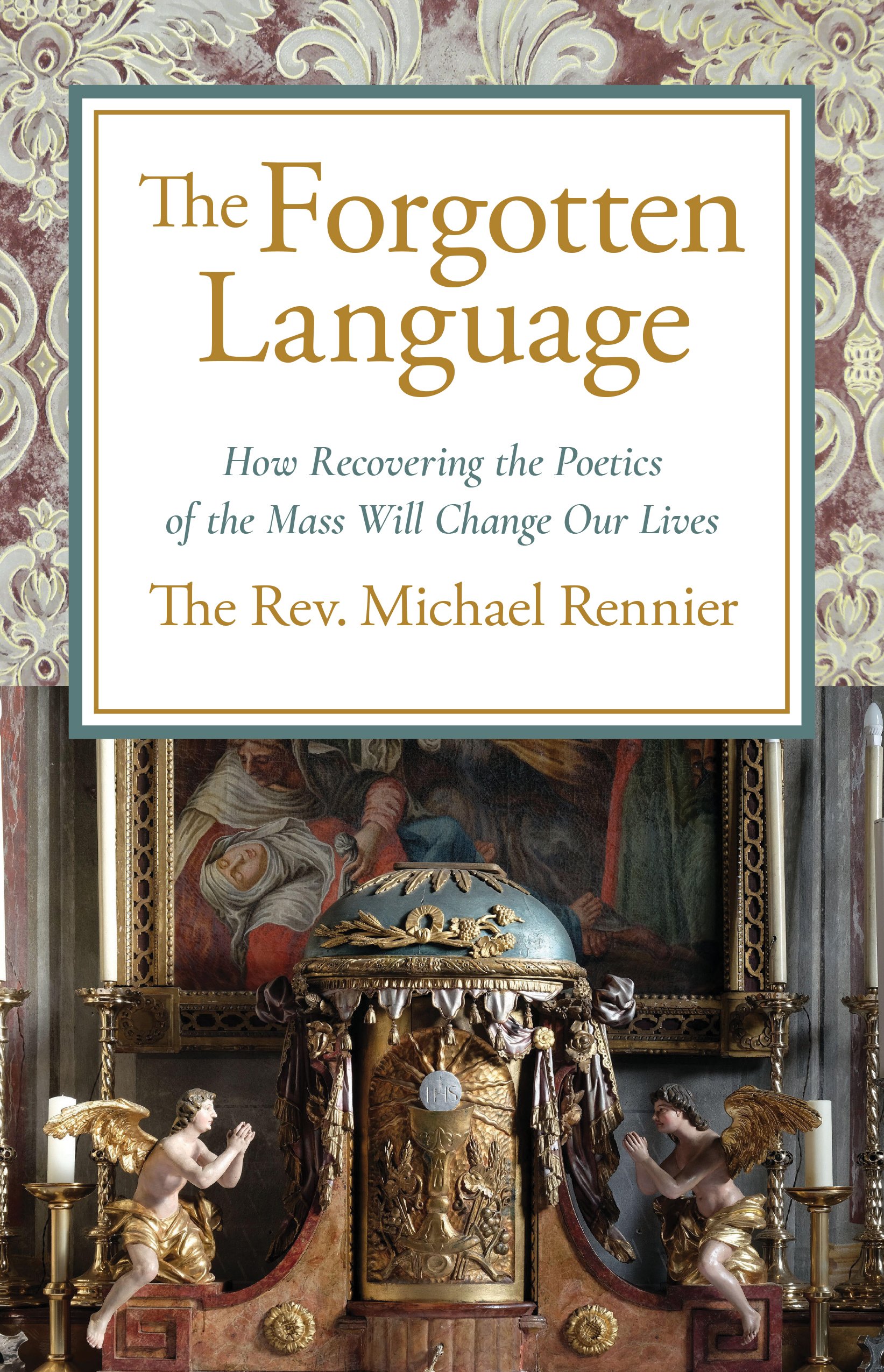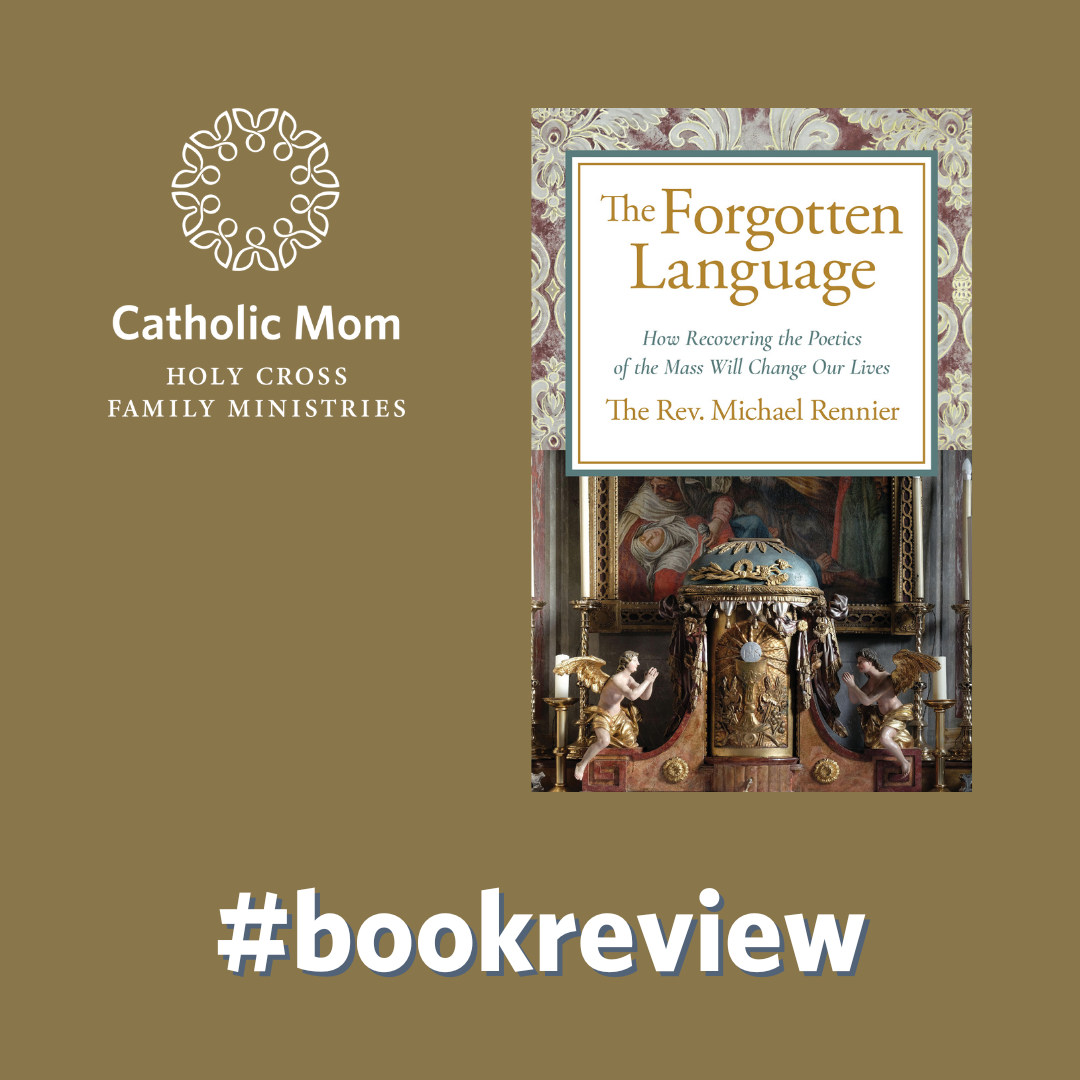
Charlene Rack shares how reading a new book by Rev. Michael Rennier challenged her to look for the poetry within the Mass.
I tend to enjoy most books that I choose to read, often falling in love with a book and its author, gobbling up everything they’ve ever written. That’s a gift. Sometimes I hear from so many people that a certain book should be read, that I force myself to read it, and then grudgingly admit that they were right. But on very rare occasions, I’ll “accidentally” come across a book that captivates me from page one, as the words inspire and swell in my heart like a beautiful ocean sunset that enters in and overwhelms me, raising me to a new level of consciousness. As I turn the pages, I sometimes have to stop reading, and simply meditate on the message. The Rev. Michael Rennier's book falls into this last category.
It’s really no surprise, considering his subject: The Forgotten Language.

Rennier aims to remind us of the beauty of, and drastic need for, the language of poetics, (especially in our faith life). Even better, he guides us to an understanding of poetry in the Church, and the poetics of the Mass, itself.
Our entire life is poetic in shape. And it all begins with the Mass.
I’d never given much thought to the entirety of the Church, along with the Mass, being poetic, but Rev. Michael sees it everywhere. It’s a living/breathing poem, from the sacred architecture of the Church to the sanctuary and the nave, and in the traditional hymns and musical instruments. The entrance and all encompassed inside the church is “imaginative poetic description of the wilderness.”
The Mass is where Christ tabernacles with us and joins in the struggle.
The height of the “poetry,” according to Rennier, is when we receive Christ in the Holy Eucharist, and experience the Mass as poem.
The Reverend is obviously speaking of poetics as a broad banner over all forms of art. The more authentically beautiful, sacred, and “poetic” a work of art is, the more it will hollow out our souls and make space for God to enter in.
What follows in the book is an insightful guide to all that we miss out on during Mass, when we are not orienting our thoughts to the poetic richness surrounding us. I admit that I often “tune out” during Mass, but this past Sunday, I challenged myself, and I found elements of poetry that I had never before noticed. I plan to dedicate a journal to this new endeavor, my search for the hidden language at Mass, as I open my soul to God’s poetry.
Rennier shares so many insights into what it takes to enter fully into the verse and poesy of God’s love song and mindboggling richness of the Mass, but he’s also very clear about what we shouldn’t do, for example (I paraphrase and embellish): you can’t go to just any old building for Mass, you can’t read from any old book, or listen to a band singing pop songs from a radio station. Traditional hymns and organ music are part of the poetry.
Rennier gently cautions us that the Mass is God’s poem, not ours, and changing it to make it more “relevant,” or easier to understand, or more entertaining, can disastrously ruin the poem. All of the essential elements are telling the poetic story, in God’s way. Without them, the story loses meaning. Without meaning, people walk away. And yes, poetry can be challenging to understand, but … poetry is meant to be challenging! Anyway, the gifts that come from understanding will make it well worth your effort.
The Mass is the font of imagination, and possesses a type of poetic knowledge that cannot be found elsewhere.
With raw and unmitigated honesty, Rennier shares his own journey of conversion, and his search for beauty and Truth. He struggled with understanding his own place in the plan of salvation. Through it all, he learned that it all comes down to two things: embracing the forgotten language which flows forth from a Mass beautifully done, and allowing God’s Poetry to be presented the way God ordained, through His Son, Jesus Christ, and down through the ages.
Worship isn’t for the sake of what we receive…, It’s an encounter with divine splendor.
We must humble ourselves, become little, so that we can actually behold the splendor.
It all comes down to humility, being able to say, as Christ Himself said, “Not my will, Father, but yours be done." Retune your soul to be in harmony with God’s poetics of revelation and love, and through the inspirations of Rev Michael Rennier, forget your desires and quietly listen, and rejoice in the beauty of the forgotten language!
Ask for The Forgotten Language at your local Catholic bookseller, or order online from Amazon.com or the publisher, Sophia Institute Press.

Copyright 2023 Charlene Rack
Images: Canva
About the Author

Charlene Rack
Charlene Rack grew up in the "heartland," moved south to Cincinnati, married a Catholic man, converted to Catholicism, and had three children. Along the way, she's planned many mission trips, youth groups, and pilgrimages to the March for life for teens and young adults - all carried out with her goofy sense of humor and her enthusiastic sense of adventure. Read her blog at Grandma’s Coffee Soup.


.png?width=1806&height=731&name=CatholicMom_hcfm_logo1_pos_871c_2728c%20(002).png)
Comments